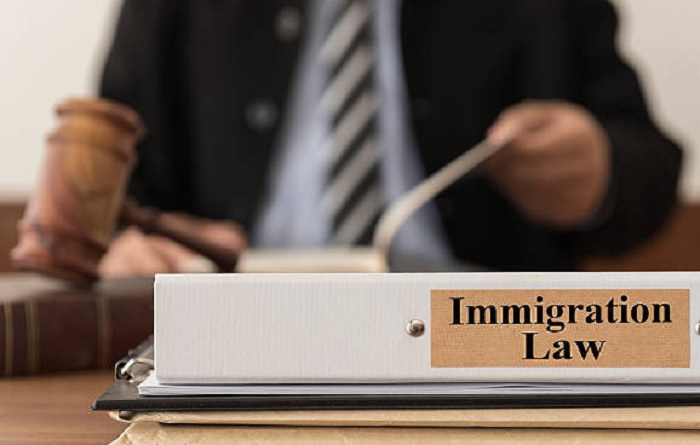Beyond the Will: Innovative Strategies from Top Estate Planning Lawyers

Innovation and expertise are the cornerstones of success in the complex and often misunderstood realm of estate planning. For those seeking guidance in this intricate area, the insights of top estate planning lawyer prove invaluable. This comprehensive exploration delves into the nuanced strategies these professionals employ to navigate the multifaceted world of wills, trusts, and beyond.
Understanding the Basics: The Role of an Estate Planning Lawyer
Before delving into the advanced tactics, it’s essential to understand the fundamental role of an estate planning lawyer. These legal professionals specialize in assisting clients with the preparation of legal documents concerning the management and distribution of an estate after death. Their expertise extends beyond drafting simple wills; they offer comprehensive solutions encompassing trusts, tax planning, and probate avoidance.
The Significance of Wills in Estate Planning
At the core of estate planning lies the concept of wills. A will is a legal document that outlines an individual’s wishes regarding the distribution of their assets posthumously. While seemingly straightforward, creating a will requires meticulous attention to detail and a deep understanding of the legal implications.
Customized Trusts: Beyond the Standard Will
Top estate planning lawyers often recommend trusts as a more flexible and comprehensive tool than a standard will. Trusts offer several advantages, including:
- Privacy: Unlike wills, trusts are not public records, ensuring higher confidentiality.
- Probate Avoidance: Trusts bypass the often lengthy and costly probate process.
- Control: Grantors can specify terms for asset distribution, providing control even after death.
Tax Efficiency Strategies
Estate planning isn’t just about asset distribution; it’s also about maximizing the value of the estate through tax efficiency. Innovative lawyers employ strategies such as:
- Charitable Giving: Utilizing charitable donations to reduce estate tax liability.
- Lifetime Gifts: Gifting assets during one’s lifetime to minimize the taxable estate.
- Irrevocable Life Insurance Trusts (ILITs): Shielding life insurance proceeds from estate taxes.

Digital Asset Management
In today’s digital age, estate planning must also encompass digital assets. Savvy lawyers are now incorporating digital asset management into their strategies, ensuring that online accounts, digital currencies, and intellectual property are adequately addressed.
Special Needs Trusts
Establishing a special needs trust is crucial for families with special needs members. This ensures that the beneficiary continues receiving government benefits while benefiting from the trust assets.
The Importance of Probate Lawyers in Estate Planning
While estate planning lawyers focus on the preparation phase, probate lawyer come into play posthumously, assisting in the legal process of administering the deceased’s estate. Their role is particularly vital in cases where the estate is complex, or disputes arise among beneficiaries.
Navigating Probate Challenges
Probation can be a challenging and time-consuming process. Probate lawyers are adept at navigating these complexities, ensuring that the estate is settled efficiently and in accordance with the decedent’s wishes.
Resolving Disputes and Litigation
In cases of contested wills or disputes among beneficiaries, probate lawyers are essential in resolving conflicts and representing the estate’s interests in court.
Estate Administration
Beyond legal representation, probate lawyers also assist executors in the practical aspects of estate administration, from asset valuation to distribution.
Leveraging Technology in Estate Planning
In a world where technology is rapidly advancing, top estate planning lawyers are leveraging digital tools to enhance their services. This includes using sophisticated estate planning software for accurate and efficient document preparation and virtual consultations to accommodate clients in different locations. Embracing technology streamlines the process and ensures accuracy and compliance with the latest legal standards.
Digital Document Management
Digital platforms for document management and storage are becoming increasingly common. These tools provide secure and easy access to important estate planning documents, ensuring that they are readily available when needed.
Virtual Estate Planning
Many estate planning lawyers offer virtual consultations with the rise of remote work and digital communication. This approach broadens their reach, allowing them to assist clients regardless of geographical constraints.
Estate Planning for Business Owners
For entrepreneurs and business owners, estate planning takes on additional complexity. Top lawyers in this field offer specialized services that address the unique needs of this group, such as:
- Business Succession Planning: Developing a plan for seamless business ownership and management transition.
- Asset Protection Strategies: Implementing legal structures to protect business assets from personal liabilities.
- Tax Planning for Businesses: Advising tax-efficient ways to transfer business ownership and minimize estate taxes.
Ethical Considerations in Estate Planning
Ethical considerations play a crucial role in estate planning. Lawyers must navigate sensitive family dynamics, ensure fair treatment of all beneficiaries, and adhere to the highest confidentiality and fiduciary duty standards. This ethical framework is essential in building trust with clients and upholding the integrity of the legal profession.
Balancing Family Dynamics
Estate planning often involves complex family situations. Skilled lawyers are adept at balancing these dynamics, ensuring the estate plan reflects the client’s wishes while minimizing potential conflicts among beneficiaries.
Fiduciary Responsibility
Estate planning lawyers bear a significant fiduciary responsibility to their clients. This includes providing unbiased advice, avoiding conflicts of interest, and ensuring the client’s best interests are always at the forefront.
<a href=”https://ibb.co/S6cFH25″><img src=”https://i.ibb.co/zmFqC1Q/49.jpg” alt=”49″ border=”0″></a>
The Future of Estate Planning
As the legal landscape continues to evolve, so will the strategies and tools used in estate planning. Innovations in legal technology, changes in tax laws, and shifts in societal norms will all influence the future direction of estate planning.
Adapting to Legal and Tax Changes
Estate planning lawyers must stay abreast of changes in laws and regulations to provide the most effective advice. This requires continuous learning and adaptation to ensure compliance and maximize client benefits.
Addressing Emerging Trends
With emerging trends such as digital currencies and international assets, estate planning lawyers are constantly developing new strategies to address these evolving areas.
Wrapping Up: The Vital Role of Estate Planning Lawyers
In closing, the role of estate planning lawyers is more critical than ever. Their expertise and innovative strategies provide peace of mind to clients, ensuring that their estate is managed and distributed according to their wishes. Whether it’sthrough traditional wills and trusts, handling complex family dynamics, or adapting to the latest legal trends, these legal professionals offer indispensable guidance in securing one’s legacy.
Estate planning may seem daunting, but it becomes a manageable and rewarding process with the right legal expertise. By entrusting their estate to the skilled hands of top estate planning lawyers, individuals can rest assured that their final wishes will be honored and their legacy preserved for future generations.











